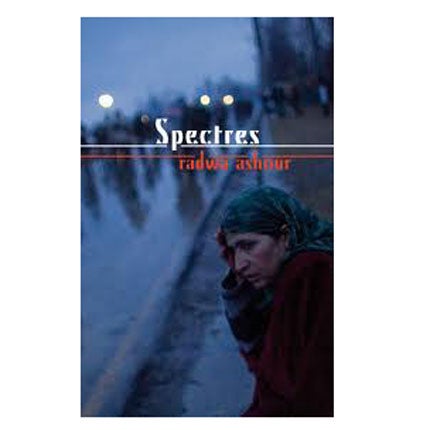Spectres, By Radwa Ashour
Personal, political, and painful

The Egyptian novelist, translator and academic Radwa Ashour's novel Spectres arrives in English at the same time as her latest novel, The Woman from Tantoura, emerges in Arabic.
The latter chronicles the Palestinian "Nakba", or disaster, during 1948, while Spectres details the ethnic cleansing of Deir Yassin in April that year.
The novel's two main characters are Shagar Abdel Ghaffar and "Radwa Ashour", women who share variant academic careers at a compromised institution and survive Egypt's turbulence from the 1950s onwards. Both are writing books with a similar title that Ashour will link to notions of "analogous figures", and binding connections. Both were born on 26 May 1946 at opposite ends of the Abbas Bridge in Cairo.
This familiar literary device becomes something else in a novel built on a sophisticated metaphorical doubling. Shagar's story opens the book with the ghosts of ancestors who died during the forced digging of the Suez Canal, and ends it with heavy-booted symbolism. Meanwhile, when she confronts her students over their collective cheating, she's told that "our society annihilates us in a thousand ways". Against considerable odds she completes her research on Deir Yassin.
More compelling is the author's startling presence as story and as teller. Ashour's actual life fills the pages: heady commitments, writerly practice, and marriage to the great Palestinian poet and memoirist Mourid Barghouti. She attempts to write of unspeakable atrocities inflicted by British and Egyptian, American and Israeli despots. Her story is of Egyptian protests and the bombing of Baghdad, of the Sabra and Shatila massacres, familial exile and friends' imprisonment. Also, she tells of a husband's duelling with their poet son Tamim, using lines of al-Mutanabbi, the great Arab poet whose works Ashour's grandfather edited.
Spectres combines invention, unofficial history and human abyss in an elliptical novel in which Ashour articulates an ethics rooted in Arabian and ancient Egyptian cultures. The result transforms a bleak constellation into a quietly stirring beacon. Spectres provides an irresistible companion to Barghouti's memoir I Saw Ramallah, and a contrast to Elias Khoury's more traditional Gate of the Sun. Spectres is a boldly original novel by an important writer whose exemplary work we need more of in English.
Join our commenting forum
Join thought-provoking conversations, follow other Independent readers and see their replies
Comments
Bookmark popover
Removed from bookmarks